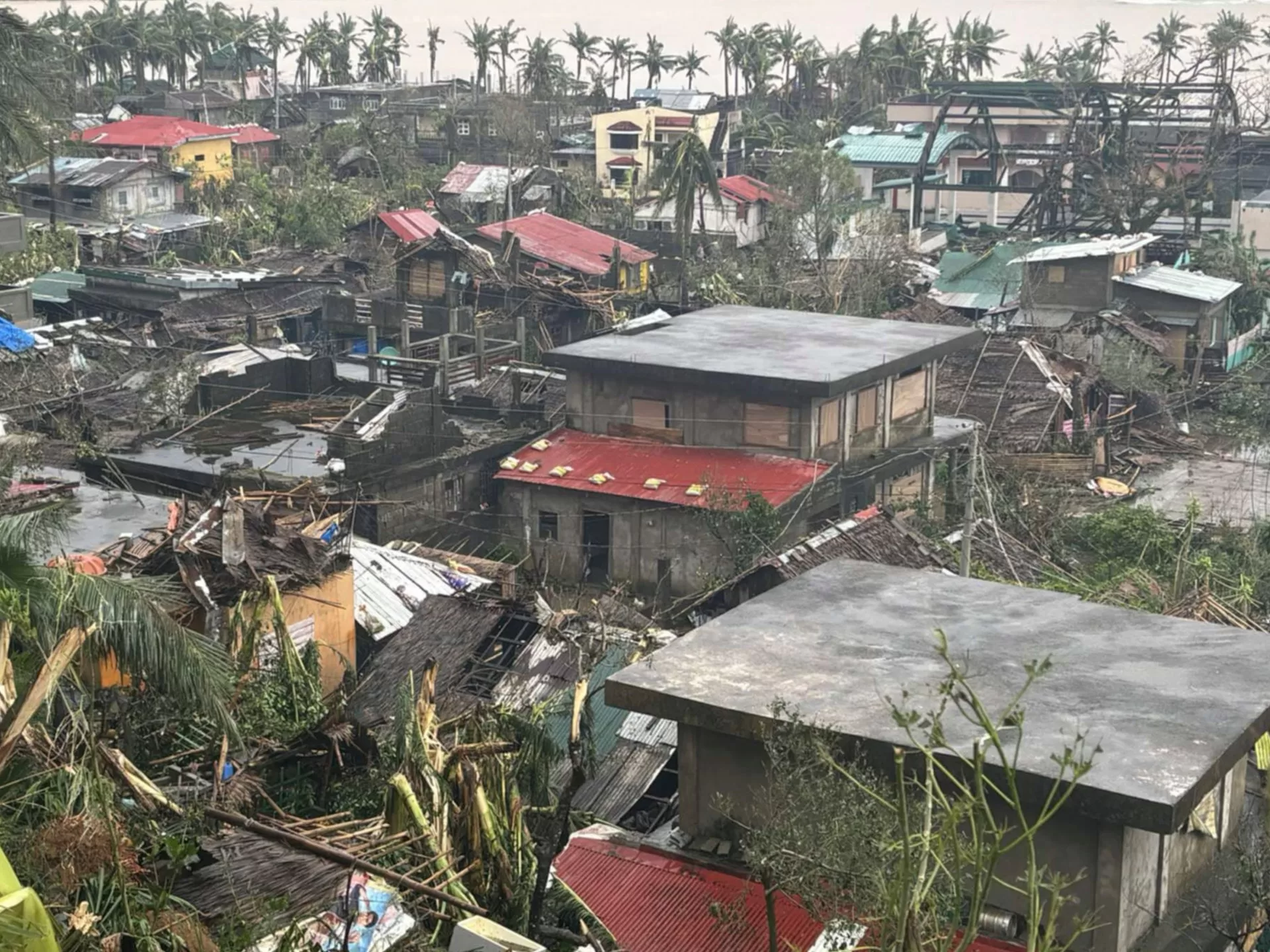A powerful typhoon has wrecked houses, caused towering tidal surges and forced hundreds of thousands of people to flee to emergency shelters as it cut across the northern Philippines in the sixth major storm to hit the country in less than a month.
Typhoon Man-yi slammed into the eastern island province of Catanduanes on Saturday night with sustained winds of up to 195km/h (125mph) and gusts of up to 240km/h (149mph). The country’s weather agency warned of a “potentially catastrophic and life-threatening situation” in provinces along its path.
There were no immediate reports of casualties from the typhoon, which was forecast to blow northwestwards on Sunday across northern Luzon, the archipelago’s most populous region. The capital region of metropolitan Manila would likely be spared from a direct hit but was placed, along with outlying regions, under storm alerts and warned of dangerous coastal storm surges.
The entire province of Catanduanes had no power after the typhoon knocked down trees and electricity posts, and disaster-response teams were checking how many more houses were damaged in addition to those affected by previous storms, he said. More than 750,000 people took refuge in emergency shelters, including churches and a shopping mall, due to Man-yi and two previous storms mostly in the northern Philippines, civil defence official Cesar Idio and other provincial officials said.
The rare number of back-to-back storms and typhoons that lashed Luzon in just three weeks has killed more than 160 people, affected nine million and caused such extensive damage to residential communities, infrastructure and farmlands that the Philippines may have to import more rice, a staple food for most Filipinos. In an emergency meeting as Man-yi approached, President Ferdinand Marcos Jr asked his cabinet and provincial officials to brace for “the worst-case scenario”.
The Philippines is battered by about 20 typhoons and storms each year. It is often hit by earthquakes and has more than a dozen active volcanoes, making it one of the world’s most disaster-prone countries.
